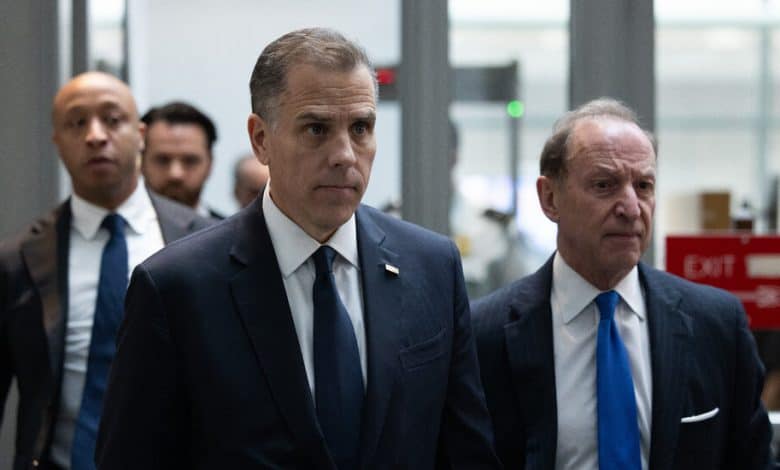Hunter Biden’s Trial on Tax Charges Is Pushed to September

The judge presiding over Hunter Biden’s tax case in Los Angeles agreed on Wednesday to delay the start of his trial to Sept. 5, giving his lawyers room to prepare for a separate trial on a firearms charge in Delaware early next month.
While the move came as a relief to President Biden’s son, it pushes a trial likely to highlight Hunter’s Biden’s effort to leverage his family’s name into profit into the homestretch of the campaign season, around the time mail-in voting starts in some states.
Both of former President Donald J. Trump’s federal trials, by contrast, have been put on hold and are increasingly unlikely to begin before the election.
Mr. Biden’s lawyer in both of his cases, Abbe Lowell, had argued that the task of defending President Biden’s son in two different venues across the country — coupled with the disparate factual and legal issues in the two indictments — made the court’s initial start date of June 20 unworkable.
David C. Weiss, the special counsel who brought both the indictments last year, had opposed Mr. Lowell’s request, claiming in court filings that both cases were straightforward and could be fairly tried in the space of a few weeks.
The judge in the tax case, Mark C. Scarsi, a Trump appointee, sided with Mr. Biden’s team — but told Mr. Lowell he was not inclined to accept any further delays.
In recent weeks, Mr. Lowell has filed several motions in Delaware and in the Central District of California, challenging key elements of both cases, arguing that the prosecution is part of a Republican witch hunt, asking for delays and unsuccessfully petitioning appeals courts to throw the case out altogether.
In December, a federal grand jury in California charged Mr. Biden with evasion of a tax assessment, failure to file and pay taxes, and filing a false or fraudulent tax return. The charges, detailed in a scathing 56-page indictment, chronicled his years of drug abuse, wild spending and flouting of federal tax laws.
A month later, Mr. Biden pleaded not guilty to evading taxes on millions in income from foreign businesses, six months after the collapse of a plea deal that would have brought an end to the long-running investigation into him.